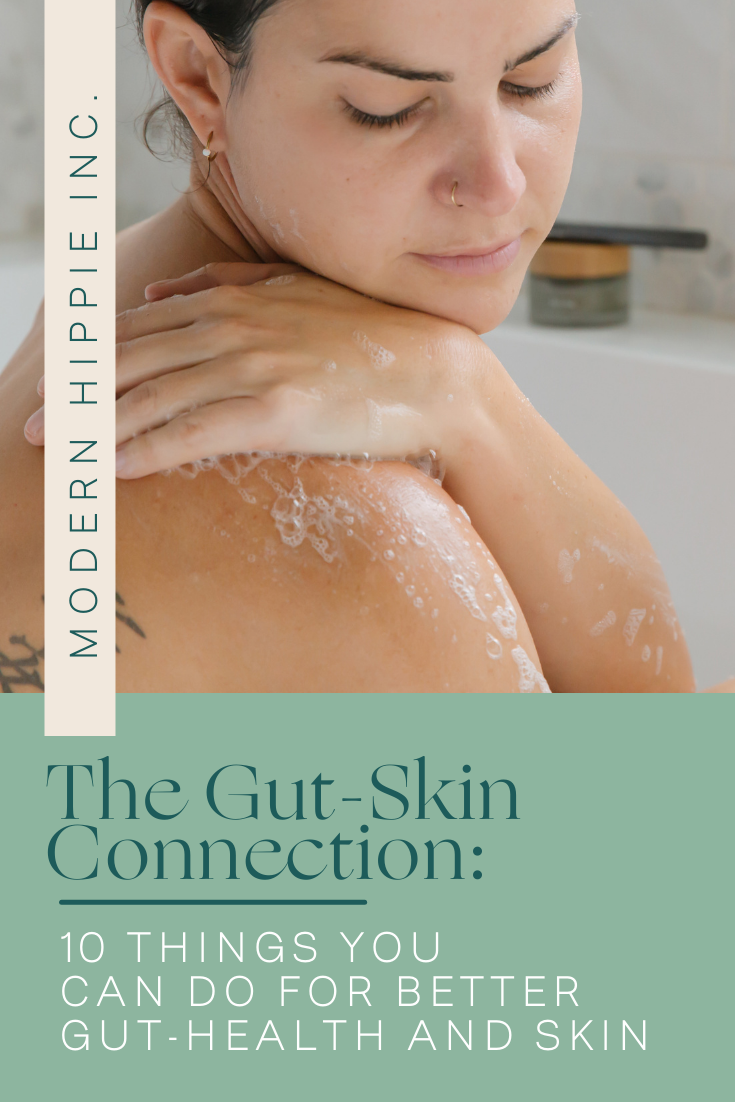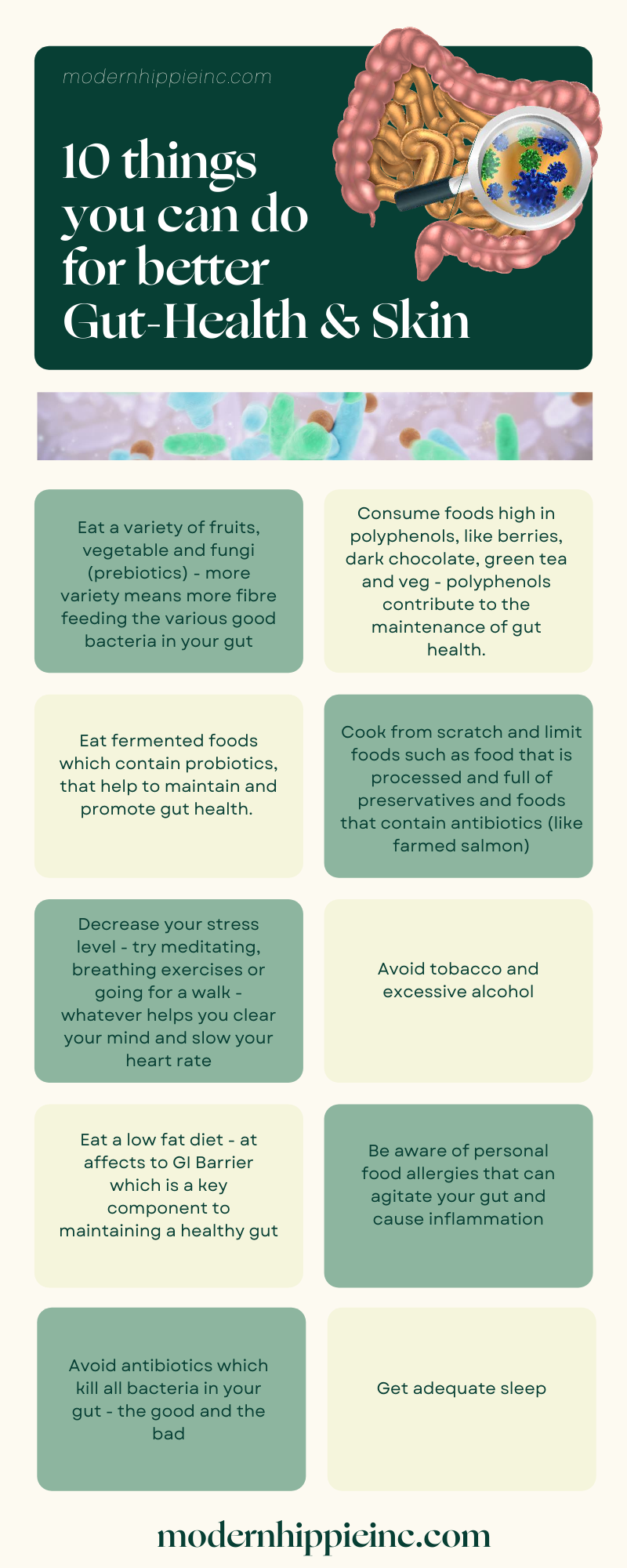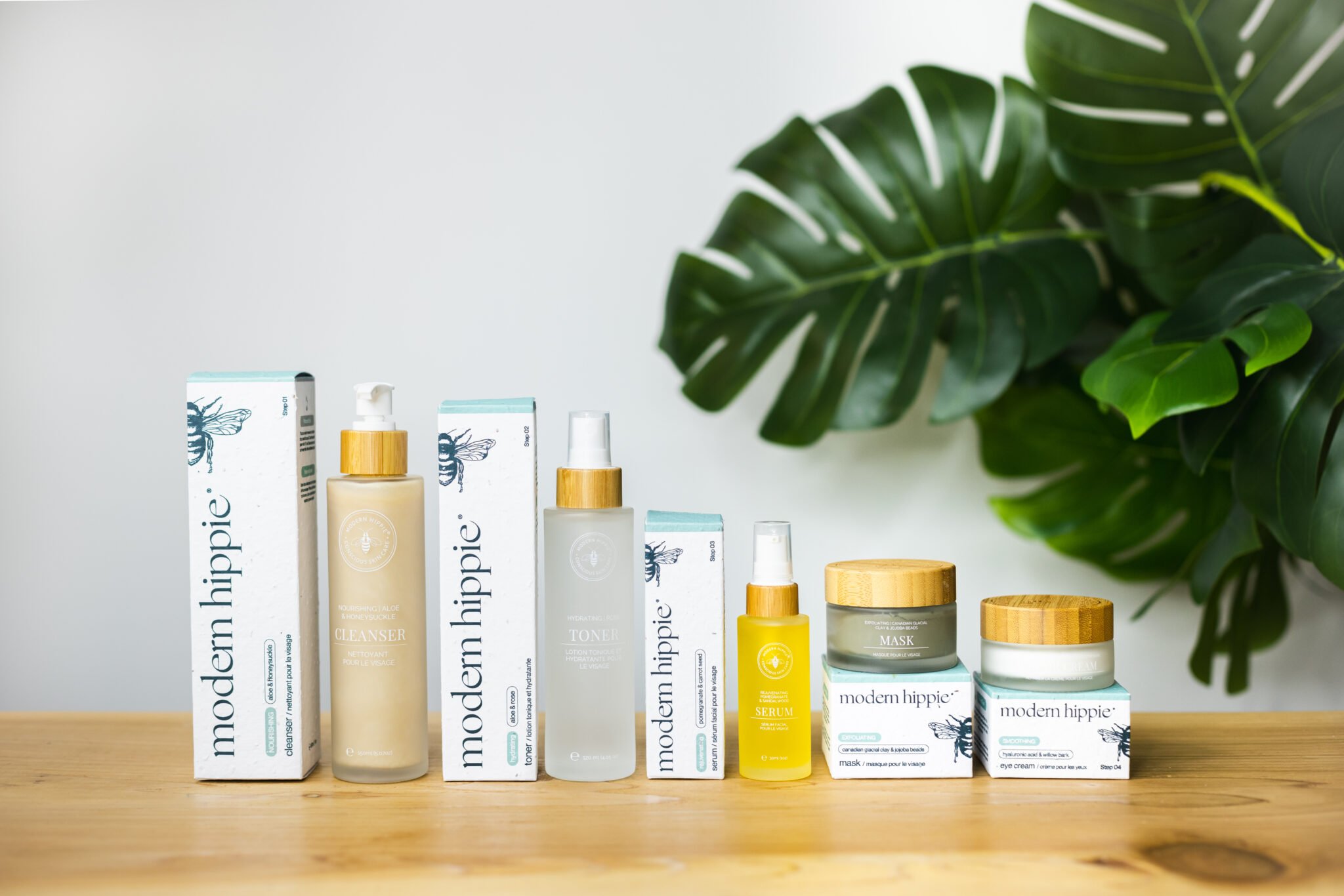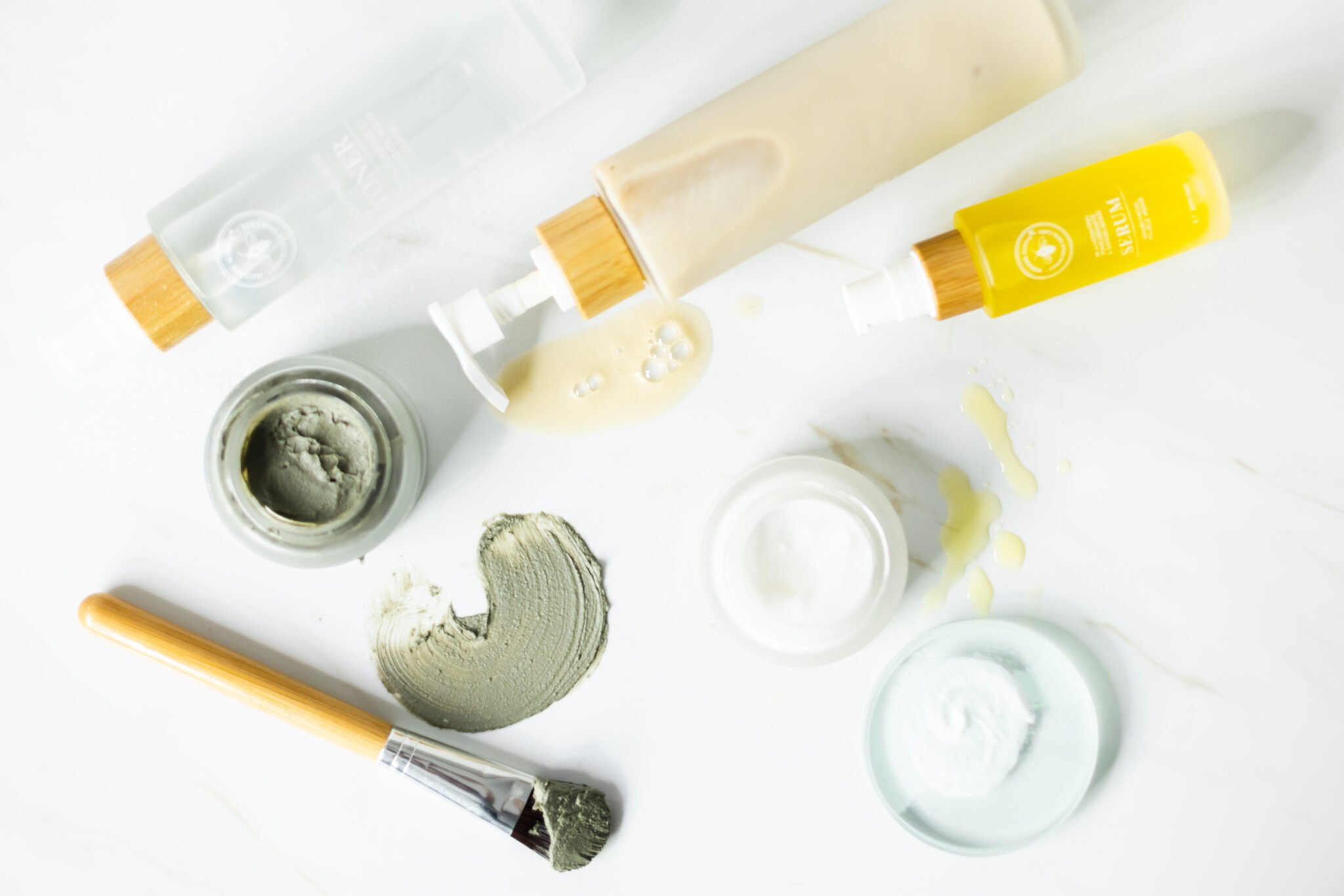10 Things You Can Do For Better Gut-Health and Skin
You can invest in the most expensive, "magical" skincare products on the market, but if your gut health is out of whack, then what you put on your skin isn't going to make a difference.
The Gut-Skin Connection
You may have heard of the gut-brain connection, but what about the gut-skin connection?
Before we get all science-y, let’s refresh your memory.
What is the Gut?
Your "gut" refers to your gastrointestinal (GI) or digestive system. It is a group of organs that includes the mouth, esophagus, stomach, pancreas, liver, gallbladder, small intestine, liver and colon.
What does gut health refer to?
Gut health describes the function and balance of bacteria (microbiome) in the gut. Ideally, organs such as the esophagus, stomach and intestines all work together to allow us to eat and digest food without discomfort. Operating at optimal efficiency and no discomfort means a healthy gut!
In other words - “effective digestion and absorption of food, the absence of GI illness, normal and stable intestinal microbiota, effective immune status and a state of well-being” (source).
A typical range of gut bacteria (microbiota) rich in diversity is needed to maintain a healthy gut. There are about 1014 bacteria that are mainly located in the large intestine [source, source].
Also, an intact gastrointestinal barrier that counteracts the bacteria and cooperates with the commensal flora is essential for optimal gut health. Local infections by bacteria and viruses, exposure to toxins or physical insults, and various systemic diseases can cause the barrier to fail (source).

What is the gut-brain connection?
The gut-brain connection has been widespread discussion over the past decade. However, the theory was first proposed 70 years ago by dermatologists John H. Stokes and Donald M. Pillsbury. They offered a link between the gastrointestinal mechanism and depression, anxiety and skin conditions such as acne.
If you think about it, it's evident that the brain and gut are connected and work together in the digestive process - that’s how we know when we’re full! But the brain and gut also play a role in our stress levels and mood. If you think about it, that makes sense - think about the “butterflies” you get in your stomach when you’re excited or nervous, and a sick feeling when you’re stressed).
The gut may inform the brain of a stressor, and the brain will do the same for the gut. Not only is the gut filled with nerve cells that receive and provide information to the brain, but the gut also produces more than 90% of the body’s serotonin, a hormone that helps regulate our mood or emotions. Stress can result in adverse effects on the gastrointestinal tract and the whole body. Source
Signs of an unhealthy gut
Many facets of modern life, such as high-stress levels, too little sleep, eating processed and high-sugar foods, and taking antibiotics, can all damage our gut microbiome. This may affect other aspects of our health, such as the brain, heart, immune system, skin, weight, hormone levels, ability to absorb nutrients, and even cancer developmentcancer.
There are several ways an unhealthy gut might manifest itself. Common symptoms of an unhealthy gut: Upset stomach, sugar craving, constant fatigue, skin irritations and acne, autoimmune conditions, and food intolerances.
Finally, what is the gut-skin connection?
Not surprisingly, the body’s largest organ, our skin, also closely connects with our gut.
“The emotions of stress (e.g., depression and anxiety), for instance, have been hypothesized to aggravate acne by altering the gut microbiota and increasing intestinal permeability, potentially contributing to skin inflammation.” Source
The gut microbiome appears to influence the skin microbiome as well. Many suggest that the gut microbiota could be involved in the pathogenic process of acne (source).
Clinical studies that proven some interested results:
- Probiotic supplementation, the administration of live beneficial gut bacteria, has a promising potential role in preventing and managing various skin conditions (Source).
- Introducing different oral probiotics have improved skin for 80% of acne sufferers, cleared psoriasis and eczema, decreased skin sensitivity, increased skin elasticity and hydration, and decreased wrinkle depth. Source
Probiotic supplementation is even considered to be a promising alternative to topical and oral antibiotic treatments for acne treatment! Although These antibiotic treatments help in the short run, they may impose the risk of antibiotic resistance and disruption of the microbiome long-run. source
I can’t stress this enough - it is SO important to maintain a healthy gut, and there are some things that you can do to improve your gut health.
10 Things You Can Do For Better Gut-Health and Skin
- Eat a variety of fruits, vegetables and fungi (prebiotics) - more variety means more fibre feeding the various good bacteria in your gut
- Eat fermented foods that contain probiotics, which help maintain and promote gut health.
- Decrease your stress level - try meditating, breathing exercises or going for a walk - whatever helps you clear your mind and slow your heart rate
- Eat a low-fat diet - at effects to GI Barrier, a crucial component to maintaining a healthy gut
- Consume foods high in polyphenols, like berries, dark chocolate, green tea and veg - polyphenols contribute to maintaining gut health (encouraging healthy bacteria growth and discouraging harmful pathogens).
- Cook from scratch and limit foods such as processed and full of preservatives and foods that contain antibiotics (like farmed salmon)
- Avoid tobacco and excessive alcohol
- Be aware of personal food allergies that can agitate your gut and cause inflammation
- Avoid antibiotics that kill all bacteria in your gut - the good and the bad
- Get adequate sleep

What can you do for healthier skin?
I wouldn’t be in business if skincare products didn’t work - of course, they do! But if we’re not getting to the root of the problem, we’re just remedying it.
Aside from all of the above - adopt a safe Skin Care routine like ours, Modern Hippie® Skin Care. We’ve formulated these skincare products for your health and the environment. You do the hard part: staying healthy and keeping your gut happy! And let me do what I’m best at - formulating the optimal skincare product.
Shop Modern Hippie Skin Care Here.



